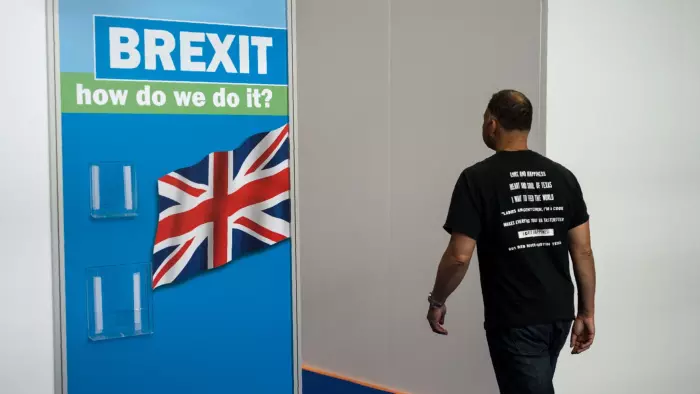On Tuesday October 3rd 2017 the Financial Times published a very insightful article “Cutting through the Brexit cacophony” into the public’s mindset on Brexit if only they are properly informed. On the basis of a scientific study on a careful cross-section of the public, evidence clearly indicates that voters’ behaviour changes when debate enhances, pushing preference away from extreme positions previously assumed. Not coincidently, James Blitz, author of the article concludes, in line with our campaign for the human right to know: “If democracy is to work well, public opinion needs to be properly informed”.
Cutting through the Brexit cacophony
More organisations need to spend time debating with members of the public.
by James Blitz
If democracy is to work well, public opinion needs to be properly informed.
What do the British people want from the Brexit negotiations? This is a simple question to ask, and a difficult one to answer. Most opinion polls on Brexit go no further than asking whether the referendum result should be reversed (and on this there has been no significant change in the public’s verdict). But gauging what voters think about issues like the customs union, the single market or future immigration controls is much trickier.
Part of the problem is that Brexit is complicated and, in an age of soundbites and social media, voters are not well briefed. Few organisations — whether they be political parties, pollsters or academics — have spent time sitting down with members of the public and running through the detailed arguments over trade, immigration and sovereignty. Britain’s raucous political culture does not lend itself to these discussions — as is all too evident at party conference time.
The Constitution Unit at University College London has tried to fill this gap. Together with the think-tank UK in a Changing Europe, it recently brought together a “Citizens Assembly” of 50 voters. The group reflected a careful cross section of how people voted at the referendum (25 voted leave, 22 voted remain and three did not vote). The group spent two weekends listening to, and taking part in, a balanced debate on Brexit with the involvement of political speakers, academics and other experts. They were then asked to decide how Brexit should proceed in four votes on specific aspects of the negotiation.
First, the Assembly voted for the UK to decouple itself from the EU and secure its own bespoke trade deal with the bloc. But if that proved impossible, the group preferred Britain to retain membership of the single market rather than do no deal at all.
Secondly, the members voted for a bespoke customs deal with the EU that would allow the UK to strike international trade pacts. But again, the approach was cautious: if a bespoke customs arrangement could not be agreed, they would prefer for Britain to remain in the Customs Union.
Thirdly, and perhaps most striking, was their view on immigration. Assembly members were offered five options, ranging from retaining free movement of labour to treating EU nationals exactly like non-EU citizens. The group opted for the second most liberal option on the menu: they would retain free movement of labour, while using existing UK government legislation to try and restrict abuse of the welfare system.
Finally, they voted on what kind of overall outcome they would like to see. Their preference was for a comprehensive trade deal with the EU combined with favourable access to the UK for EU citizens. Again, if this were unattainable, they wanted the UK to remain in the single market.
There are two conclusions to draw from this exercise. First, this group (a cross-section of society that has thought through the issues) clearly favours the line taken by Philip Hammond to keep a post-Brexit UK closely aligned to Europe, taking no risks with the economy. It rejects the position taken by Boris Johnson and Liam Fox that the UK should sign a limited trade deal with the EU or no trade deal at all.
Secondly, the Citizens’ Assembly exercise is one that other media institutions, especially broadcasters, would be wise to replicate. If democracy is to work well, public opinion needs to be properly informed. Much of what voters have been offered in the current party conference season has amounted to rhetoric and misinformation. On an issue as complex as Brexit, people need more citizens’ assemblies to cut through the cacophony.
Read the original article on the website of the Financial Times

